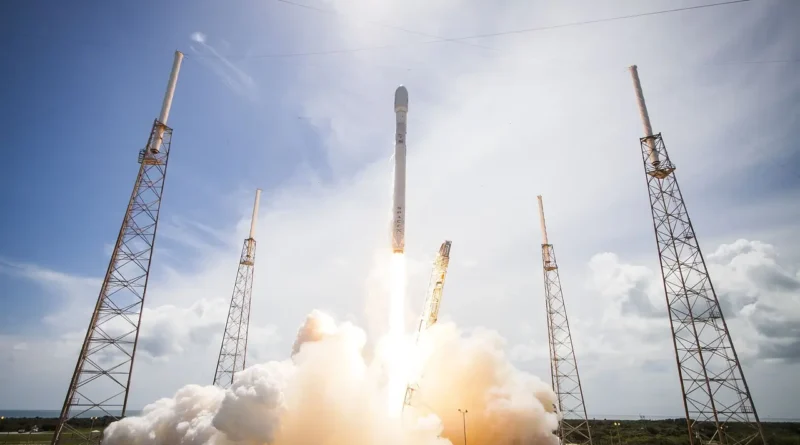Iran Targets Israel in Major Missile Strike
Iran Targets Israel in Major Missile Strike. On October 1, 2024, Iran launched a massive missile strike on Israel, significantly escalating tensions in the Middle East. This attack followed months of heightened conflict across the region, involving various factions and nations, as Israel found itself simultaneously dealing with hostilities on multiple fronts. The strike marked one of the most serious escalations between Iran and Israel in years and had significant political and military ramifications.
Table of Contents
The Attack in Detail
Iran fired approximately 180 missiles towards Israel in the nighttime attack. The targets were scattered across Israel, and while most of the missiles were intercepted by Israel’s advanced air defense systems, some managed to get by the missile defenses, striking areas in central and southern Israel. According to Israeli officials, no fatalities were reported from the missile impact, though there were reports of limited infrastructure damage. However, one Palestinian man in the West Bank was killed by falling debris from an intercepted Iranian missile.
This missile barrage was part of a larger, coordinated escalation by Iran, which had previously launched attacks against Israel in April of 2024, also using drones and ballistic missiles. That earlier assault was similarly countered by Israeli defenses, but it signaled a sharp increase in direct Iranian military engagement, something that had typically been conducted through proxy groups like Hezbollah and Hamas.
Regional and Global Reactions
Iran Targets Israel in Major Missile Strike. The October 1 attack was not an isolated incident but part of a broader conflict that had already drawn in multiple actors across the region. Israel was simultaneously engaged with Hamas in Gaza to the south and Hezbollah in Lebanon to the north, creating a three-front confrontation that posed significant strategic challenges for the Israeli Defense Forces (IDF). The Iranian missile strike added a new dimension to this already volatile situation.
Israel’s Prime Minister, Benjamin Netanyahu, immediately condemned the attack, stating, “Iran made a big mistake this evening, and it will pay for it.” His comments reflected the gravity of the situation and Israel’s determination to retaliate against Iran. Netanyahu also stressed that Israel would not allow such provocations to go unanswered, and Israeli military action in response was widely anticipated.
In the United States, President Joe Biden reiterated his administration’s unwavering support for Israel. In a public statement, Biden said, “Make no mistake. The United States is fully, fully, fully supportive of Israel.” The U.S. Defense Department was actively involved in helping Israel defend against the missile strike, with U.S. Navy destroyers in the region deploying interceptors to target some of the incoming missiles .
Context and Background
The Iranian missile strike followed a series of significant events in the region that had contributed to the rising tensions. In September 2024, Hezbollah, an Iranian-backed militant terrorist group based in Lebanon, suffered heavy losses in an Israeli military campaign that targeted its leadership and infrastructure. This operation was seen as a critical blow to Hezbollah’s ability to wage war against Israel, particularly after the assassination of several high-ranking commanders in Israeli airstrikes.
Iran Targets Israel in Major Missile Strike. Iran’s October missile attack was widely seen as a retaliatory move for the deaths of key figures in Hezbollah and Hamas. Iran claimed responsibility for the strike, citing the assassination of Hezbollah leader Hassan Nasrallah and other senior commanders as the justification for its actions. These assassinations were part of a broader Israeli effort to degrade the military capabilities of Iranian proxies in the region, including both Hezbollah and Hamas, which have long been aligned with Iran’s regional strategy.
In particular, the elimination of Nasrallah dealt a major blow to the Iranian-led “Axis of Resistance,” a coalition of Islamist militias that operate across the Middle East and work to challenge Israeli and Western interests. Israel’s ability to target and eliminate such high-profile leaders demonstrated its intelligence and military reach, but it also raised the stakes in the ongoing conflict. Iran’s response, in the form of the missile barrage, underscored its commitment to retaliating against what it views as existential threats to its proxy network.
Broader Implications
The missile attack occurred at a time when the Middle East was already experiencing unprecedented levels of violence and instability. Since the Hamas-led assault on Israel in October 2023, which resulted in significant Israeli casualties and a subsequent military response, the region has been on edge. Hezbollah’s involvement in the conflict, along with other Iranian-aligned groups, has further complicated the situation. The multi-front war that Israel now faces is unlike any it has encountered in recent decades.
Iran Targets Israel in Major Missile Strike. Iran’s direct involvement in missile strikes against Israel marks a departure from its traditional reliance on proxies. This shift in strategy may reflect a calculation by Tehran that it needs to take a more hands-on role in the conflict to achieve its strategic objectives. However, such moves risk triggering a larger regional war, something that many analysts and global leaders have warned against.
In Israel, the missile attack has heightened domestic concerns about the nation’s security situation. While Israel’s air defenses, including the Iron Dome system, performed admirably in intercepting most of the missiles, the sheer scale of the attack has raised questions about the country’s ability to defend against sustained assaults on multiple fronts. Israel’s military is now stretched thin as it deals with simultaneous threats from Gaza, Lebanon, and Iran.
The international community is watching the situation closely, with many fearing that the October 1 attack could be a precursor to even greater violence. The feckless United Nations and various world leaders have called for restraint, but with both Israel and Iran digging in their heels, the prospect of a larger war seems more likely than ever.
Iran Targets Israel in Major Missile Strike
Conclusion
The October 1, 2024, missile strike by Iran against Israel marks a significant escalation in the Middle East conflict, one that could have profound consequences for the region. While Israel managed to intercept most of the missiles, the attack highlighted the growing tensions between Iran and Israel and the potential for this conflict to spiral into a broader regional war. As Israel prepares for possible retaliatory strikes, the international community remains on edge, hoping that diplomacy can prevent further bloodshed in a region already beset by senseless terrorism.




